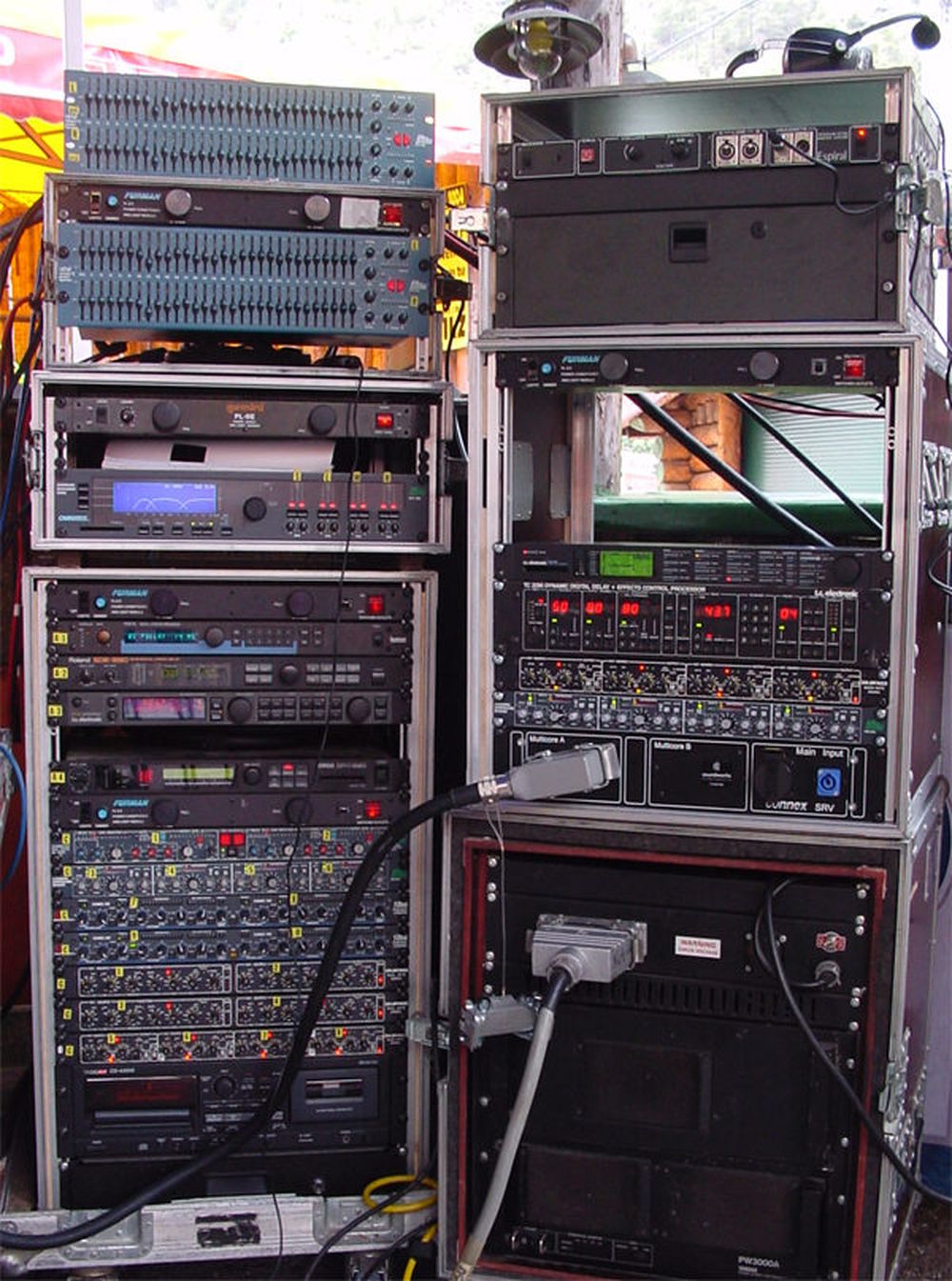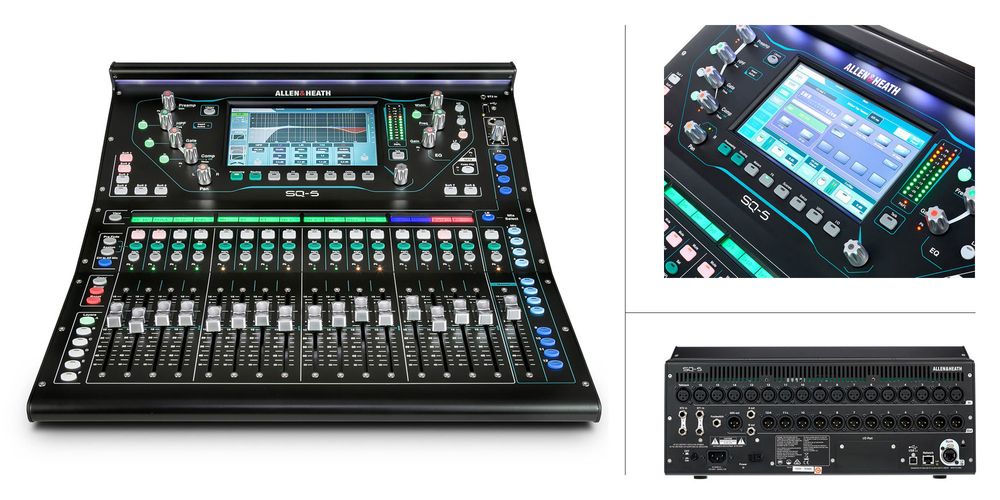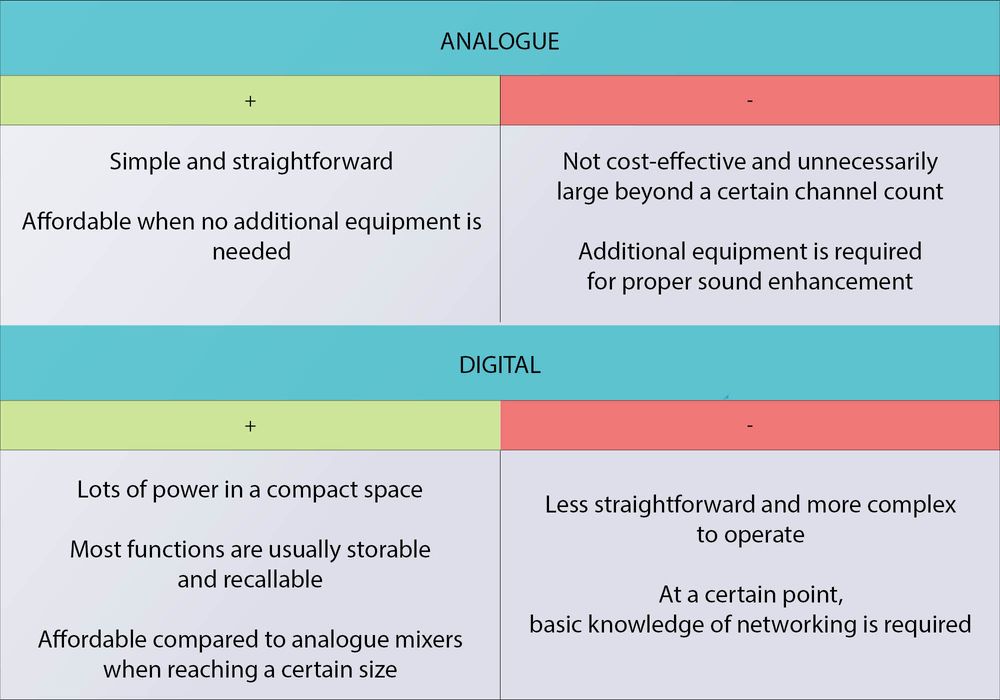4. Analogue and Digital Mixers
Digital technology has been making its way into mixers for several years now. Especially in the larger arena (with channel counts starting from 16 or at least 24 mono inputs), there are hardly any analogue consoles left.
Why is that?
In an analogue mixer, you get a dedicated knob for each function. With a certain number of inputs, buses, and sophisticated EQs, these can quickly become massive:

Analogue 48-channel console License: CC BY-SA 3.0 (https://adn.harmanpro.com)
Moreover, you'd still need huge and expensive side racks for graphic EQs, gates, compressors, and often even for the mixer's power supply. With 48 channels all needing compression, 12 monitor buses with graphic EQ, and 4 external multi-effects units, you'd have to connect 64 devices.

Side racks with analogue equipment. License: CC BY-SA 3.0 (https://www.creasound.net)
Digital mixers typically offer a gate, compressor, finely adjustable EQ per channel, plus multiple built-in effects and graphic EQs.
The advantage is clear: you save a tremendous amount of space, weight, wiring, and usually costs. The same channel count as mentioned above (48 inputs, 12 monitor buses) can be found in a compact digital mixer:

Compact 48-channel digital mixer
With digital mixers, you get a lot of power in a small space. However, it might take a bit longer to navigate to the desired function since you often have to search in sub-menus.
Since the topic of digital mixers is extensive, we've created a separate online guide about it. For those interested in diving deeper, we highly recommend checking it out.
Here are the fundamental pros and cons of both worlds:
As digital technology becomes more affordable, it often no longer makes sense to invest in an analogue mixer. For larger setups, working with analogue technology is now mostly for enthusiasts.
Professional sound engineers needing many channels and making precise sound adjustments will typically opt for a digital mixer.
People with fewer technical skills, using only a few functions of the mixer and managing a small number of signals, are still well served with an analogue mixer.







